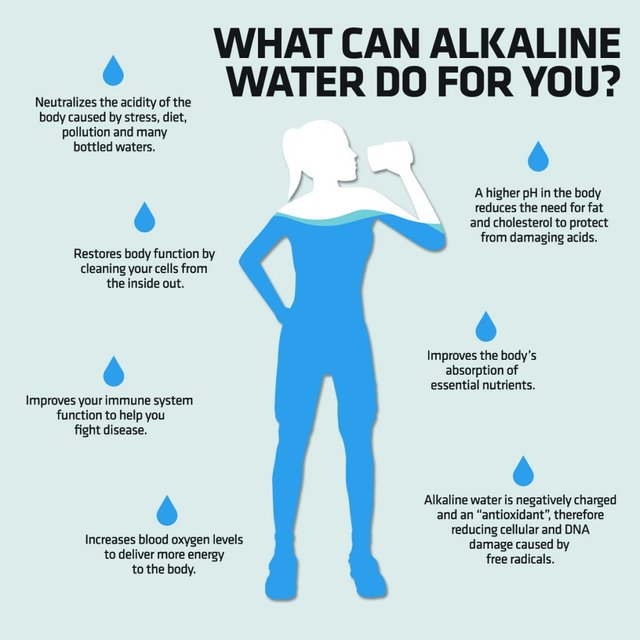Alkalinity
A very interesting study by Koufman JA and Johnston N.


Abstract
OBJECTIVES:
At the cellular level, tissue-bound pepsin is fundamental to the pathophysiologic mechanism of reflux disease, and although the thresholds for laryngeal damage in laryngopharyngeal reflux and for esophageal damage in gastroesophageal reflux disease differ, both forms of damage are due to pepsin, which requires acid for its activation. In addition, human pepsin remains stable at pH 7.4 and may be reactivated by hydrogen ions from any source. Thus, most tap and bottled waters (typically pH 6.7 to 7.4) would not be expected to affect pepsin stability. The purposes of these in vitro studies were to investigate whether artesian well water containing natural bicarbonate (pH 8.8) might irreversibly denature (inactivate) human pepsin, and to establish its potential acid-buffering capacity.
METHODS:
Laboratory studies were performed to determine whether human pepsin was inactivated by pH 8.8 alkaline water. In addition, the buffering capacity of the alkaline water was measured and compared to that of the two most popular commercially available bottled waters.
RESULTS:
The pH 8.8 alkaline water irreversibly inactivated human pepsin (in vitro), and its hydrochloric acid-buffering capacity far exceeded that of the conventional-pH waters.
CONCLUSIONS:
Unlike conventional drinking water, pH 8.8 alkaline water instantly denatures pepsin, rendering it permanently inactive. In addition, it has good acid-buffering capacity. Thus, the consumption of alkaline water may have therapeutic benefits for patients with reflux disease.
Hi, mossinator! I just resteemed your post!
I am a new, simple to use and cheap resteeming bot.
If you want to know more about me, read my introduction post.
Good Luck!